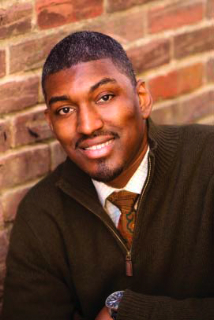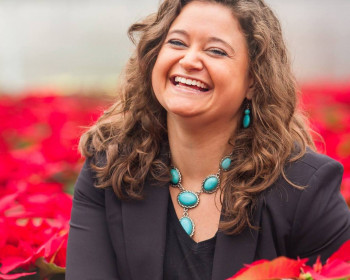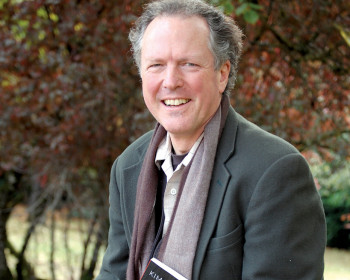Engaging Men and Boys to Prevent Domestic and Sexual Violence: Q&A with Dr. Andrae Brown
Open gallery

In his work as an associate professor in Lewis & Clark’s Graduate School of Education and Counseling, Andrae Brown’s work has focused on the prevention of violence, especially through direct work with men and boys. With his leadership, the Center for Community Engagement at the graduate school partnered with a national organization, A Call to Men, to host an intensive two-day training for community-driven violence prevention efforts. The Call to Men Institute brought together men and boys (and some women) from across the Portland Metro area.
What is unique about the Call to Men approach in contrast to mainstream anti-domestic and sexual violence efforts, and why do you support their methods?
Their approach is that they not only want to stop violence, but they focus on challenging and redefining manhood and norms of masculinity for men of all ages, sexual orientations, and ethnicities. This focus has been proven to sustain shifts in attitudes and behaviors. Another key feature is that the organization addresses all types of violence: between intimate partners and families, and within schools and our communities overall. This deliberate recognition of various forms and levels of violence engages all types of men.
Women trust the organization because they know that they are going to be consistent, thorough, and true to the mission of ending violence.
How does the Call to Men Institute work to support social justice?
It’s about building community capacity. A Call to Men allows Oregonians to come together in one place and engage in a dialogue that is transformative and will literally have an impact for years to come on families and communities. This is just the first of many steps in this process.
You are known for work that falls under the umbrella term “liberation-based healing.” Can you explain what that is, and how it connects to domestic violence prevention?
The connection between the Call to Men approach and liberation-based healing is quite strong. I think the crux of both movements lie in these core tenants: 1) raising critical consciousness about issues like violence in communities; 2) empowering individuals, families and communities to begin to address these issues; and 3) holding individuals, communities and systems accountable for stopping oppression and promoting social justice, equity, and healing.
We have an annual conference for liberation-based healing, and one of its core aims is to bring together professionals, community advocates, and citizens to tap into the resilience in their communities. Many of the things that professionals may consider “innovative” are mainstays of the communities in which they serve. So, the goal is to amplify the voices of those who may be silenced. When I began to look closer at A Call to Men, the fit was obvious.
Who are some of the community partners you worked with on this project?
What’s most impressive is that the list continues to grow because this is a community-supported grassroots effort. We have gotten referrals and support from grandmothers, restaurants, barbershops, schools, community members, colleges, health service providers, and well-meaning men across the state of Oregon. The goal is to create and support effective mental health workers and advocates throughout the entire community, not just among individuals with degrees. Everyone has the capacity to create positive change. Community problems require community solutions.
Support has come from all spheres of the community. Partners include St. Johns All Nations Church of God in Christ, SoValTi Family Services Group, Martha’s House, the state attorney general’s Sexual Assault Task Force, the South Asian Women’s Empowerment and Resource Alliance, Henderson House, Northwest Country Community Outreach, and AllState Foundation.
Where do you hope to see this work going? Where do the greatest opportunities to effect change lie?
In the Marriage, Couple and Family Therapy program, where I teach, we have already integrated issues of domestic and sexual violence into the curriculum, paying particular attention to the intersection of race, class, gender, sexual orientation, and abilities. This enables our students to better address the complexities of these issues in their clinical work and as social justice advocates. The biggest impact will come from us supporting our students be more sensitive to and respond to these issues in their work. Our reach as a graduate school is tremendous and we can use our influence to help people across the state on a daily basis.
We also want to be a resource for the community. One example is the L.E.A.P. of Faith project, which works with Black churches to address domestic violence in their congregations. We want to be seen as a place where people can receive advanced training in understanding violence and how to develop strategies to combat and challenge it.
Andraé Brown, PhD, is an assistant professor at Lewis & Clark Graduate School of Education and Counseling, co-director of Affinity Counseling Group, and board member for the Council on Contemporary Families. Dr. Brown earned his PhD in marriage and family therapy at Seton Hall University.
Graduate Communications is located in room 205 of Rogers Hall on the Graduate Campus.
voice 503-768-6054
fax 503-768-6053
Graduate Communications
Lewis & Clark
615 S. Palatine Hill Road
Portland OR 97219


